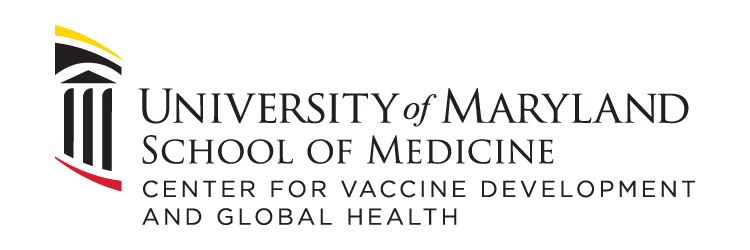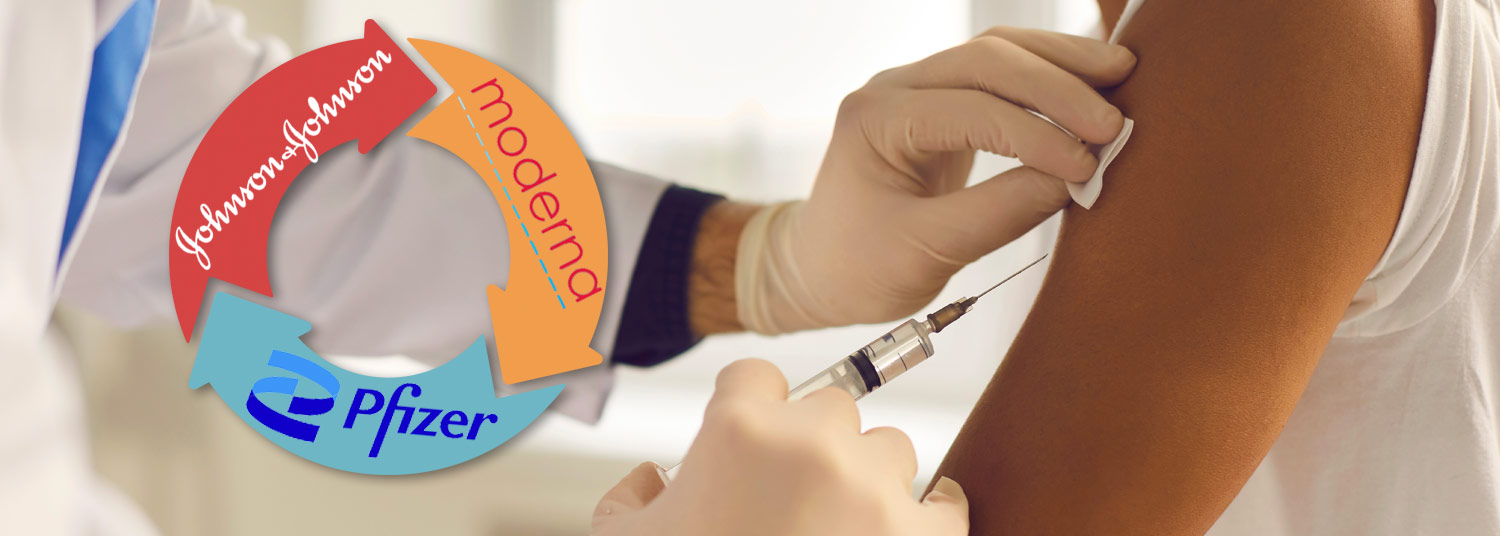January 26, 2022 | January Payne
Dr. Kirsten Lyke presented data – just published in NEJM – to FDA committee for approval
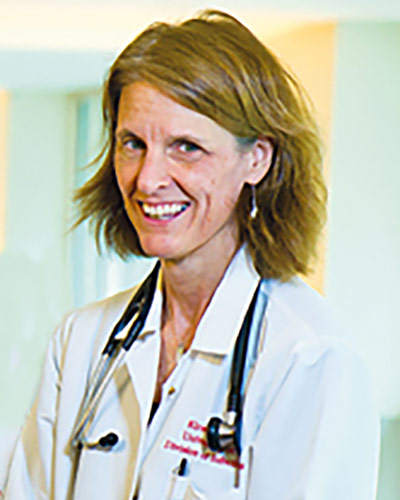
A University of Maryland School of Medicine (UMSOM), Center for Vaccine Development and Global Health (CVD), expert is co-leading an ongoing study that was pivotal in recommending adults and teens receive booster COVID-19 shots of their choosing starting in fall 2021. The preliminary clinical trial results, reported today in The New England Journal of Medicine, found that is safe and effective to receive boosters that are the same or a different one from the person’s primary vaccine(s).
Kirsten E. Lyke, MD, Professor of Medicine at UMSOM, is Co-Chair and site Principal Investigator for the study and presented data to the U.S. Food and Drug Administration’s (FDA) expert vaccine panel in October that led to the recommendation for mix-and-match booster doses following completion of Emergency Use Authorization (EUA) regimens.
“This study was pivotal in contributing knowledge about the safety and immune responses of mixing and matching primary vaccines and boosters,” said Dr. Lyke, who is also the Director of CVD’s Malaria Vaccine and Challenge Unit. “Boosters are critical against emerging variants of concern, such as the Delta and Omicron variants. The boosters provide an important tool to prevent severe disease, hospitalization, and death.”
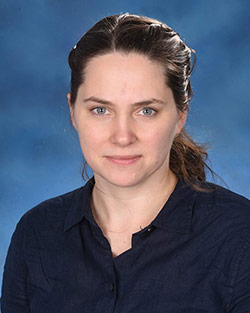
The newly published study found that for adults who previously received a full regimen of any COVID-19 vaccine granted EUA or approved by the FDA, an additional booster dose of any of these vaccines was safe and prompted an immune response. The ability to use vaccines for boosting that are different from those used for the primary series – mix and matching – can simplify vaccine booster administration.
These findings are from an ongoing phase 1/2 trial conducted under the UMSOM’s VTEU as part of the IDCRC and sponsored by the National Institute of Allergy and Infectious Diseases (NIAID) at the National Institutes of Health.
The NEJM report describes findings from 458 adult volunteers who had been fully vaccinated with one of the three EUA COVID-19 vaccines at least 12 weeks prior to enrollment. Of those volunteers, 150 study participants received a booster of Johnson & Johnson’s Ad26.CoV2-S vaccine; 154 received a booster of Moderna’s mRNA-1273 vaccine (100 microgram dose); and 154 received a booster of Pfizer-BioNTech’s BNT162b2.
The IDCRC trial, which began enrollment in May 2021, is led by Co-Chairs Robert L. Atmar, MD, of Baylor College of Medicine, Houston, Texas, and Dr. Lyke at the UMSOM.
“Mix-and-match is not a new approach. It is a well-known principle in vaccine science research. Mixing vaccine platforms can elicit a stronger, longer-lasting response than a single vaccine regimen and could help us fight variants,” said Dr. Lyke.
At 15 days after booster vaccination, serum antibody levels increased in all study groups, and leveled off by day 29. For a given primary EUA COVID-19 vaccine, administering a different vaccine as a booster elicited similar or higher serologic responses as compared to their respective homologous booster response. Additionally, T cell responses were measured. Cellular CD4 Th1 T cell responses directed against the spike protein increased in all groups except volunteers who received a single dose of Johnson & Johnson followed by a booster of Johnson & Johnson. However, CD8 T cell responses were more durable in Johnson & Johnson recipients and those who received an mRNA primary series followed by a Johnson & Johnson boost.
Booster vaccines may enhance waning immunity and expand the breadth of immunity against SARS-CoV-2 variants of concern. Heterologous prime-boost strategies may offer immunological advantages to optimize the breadth and longevity of protection achieved with currently available vaccines. They may also simplify the logistics of administering booster vaccines.
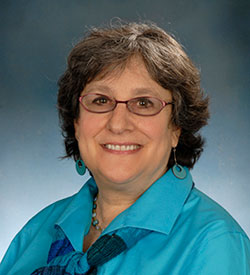
The trial participants kept diaries of any side effects and supplied blood samples on the day of booster vaccination and 15 days after boost. More than half of participants reported mild/moderate headache, pain at the injection site, muscle aches, and malaise, which was similar to the primary series. There were no vaccine-related serious adverse events reported.
Study participants will be followed for a year to assess longer-term immune responses. Additional COVID-19 vaccine candidates will be studied in the future.

NIAID grants supporting this research are UM1AI48372, UM1AI148373, UM1AI148450, UM1AI148452, UM1AI148573, UM1AI148574, UM1AI148575, UM1AI148576, UM1AI148684, UM1 AI148689 and with support from the NIAID Collaborative Influenza Vaccine Innovation Centers (CIVICs) contract 75N93019C00050.
About the University of Maryland School of Medicine Vaccine Treatment and Evaluation Unit (VTEU)
NIAID established the Vaccine and Treatment Evaluation Units (VTEUs) in 1962 as centers of excellence for conducting clinical trials to develop new and improved vaccines and therapies against infectious diseases. The University of Maryland School of Medicine (UMSOM) investigators have been the recipients of this prestigious award for over four decades and have conducted hundreds of clinical trials (current award number 5UM1AI148689, Principal Investigator Dr. Karen Kotloff). An important role of the VTEUs is the capability to rapidly enroll and vaccinate large numbers of volunteers into trials according to the highest quality standards that can support approval and licensure. Rapid-response capability is especially important for testing vaccines to counteract emerging public health concerns such as pandemics. For example, VTEU investigators at UMSOM played leadership roles in trials which led to FDA approval of the 2009 swine flu vaccine strain and, more recently, COVID-19 vaccines. Another goal of the VTEUs is to develop new and improved vaccines against infections of public health importance. VTEU investigators at the UMSOM participated in the pivotal trial that let to licensure of FluMist, an influenza vaccine delivered by nasal spray. VTEU trials at UMSOM supported licensure of a cholera vaccine developed at CVD for travelers. The UMSOM VTEU continues to perform trials of vaccines that will strengthen the national stockpile of vaccines to prevent infections that could be used as a bioterrorist weapon against the U.S., such as smallpox and anthrax. The UMSOM VTEU investigates novel approaches to improve vaccine delivery particularly in low income countries. We conducted the first clinical study of an edible vaccine in 1998 using genetically engineered plants that contain vaccine antigens that might protect against diarrheal diseases. In keeping with our focus on bringing vaccines to underserved populations globally, we are conducting international studies for vaccines to prevent malaria, meningitis, and many others.
About Infectious Disease Clinical Research Consortium (IDCRC)
The IDCRC, consisting of the Vaccine Treatment and Evaluation Units (VTEUs) and the IDCRC Leadership Group (under award number UM1AI148684), was formed in 2019 to support the planning and implementation of infectious diseases clinical research that efficiently addresses the scientific priorities of NIAID. The consortium includes infectious diseases leaders and clinical researchers from Emory University, University of Maryland School of Medicine, Baylor College of Medicine, Cincinnati Children’s Medical Center and University of Cincinnati, FHI360, Fred Hutchinson Cancer Research Center, Johns Hopkins University, Kaiser Permanente Washington Health Research Institute, New York University, Saint Louis University, Vanderbilt University Medical Center, University of Alabama at Birmingham, University of Rochester, University of Washington, other affiliated sites and NIAID.
About the University of Maryland School of Medicine
Now in its third century, the University of Maryland School of Medicine was chartered in 1807 as the first public medical school in the United States. It continues today as one of the fastest growing, top-tier biomedical research enterprises in the world -- with 46 academic departments, centers, institutes, and programs, and a faculty of more than 3,000 physicians, scientists, and allied health professionals, including members of the National Academy of Medicine and the National Academy of Sciences, and a distinguished two-time winner of the Albert E. Lasker Award in Medical Research. With an operating budget of more than $1.2 billion, the School of Medicine works closely in partnership with the University of Maryland Medical Center and Medical System to provide research-intensive, academic and clinically based care for nearly 2 million patients each year. The School of Medicine has nearly $600 million in extramural funding, with most of its academic departments highly ranked among all medical schools in the nation in research funding. As one of the seven professional schools that make up the University of Maryland, Baltimore campus, the School of Medicine has a total population of nearly 9,000 faculty and staff, including 2,500 students, trainees, residents, and fellows. The combined School of Medicine and Medical System (“University of Maryland Medicine”) has an annual budget of over $6 billion and an economic impact of nearly $20 billion on the state and local community. The School of Medicine, which ranks as the 8th highest among public medical schools in research productivity (according to the Association of American Medical Colleges profile) is an innovator in translational medicine, with 606 active patents and 52 start-up companies. In the latest U.S. News & World Report ranking of the Best Medical Schools, published in 2021, the UM School of Medicine is ranked #9 among the 92 public medical schools in the U.S., and in the top 15 percent (#27) of all 192 public and private U.S. medical schools. The School of Medicine works locally, nationally, and globally, with research and treatment facilities in 36 countries around the world. Visit medschool.umaryland.edu
About the Center for Vaccine Development and Global Health
For over 40 years, researchers in the Center for Vaccine Development and Global Health have worked domestically and internationally to develop, test, and deploy vaccines to aid the world’s underserved populations. CVD is an academic enterprise engaged in the full range of infectious disease intervention from basic laboratory research through vaccine development, pre-clinical and clinical evaluation, large-scale pre-licensure field studies, and post-licensure assessments. CVD has worked to eliminate vaccine-preventable diseases. CVD has created and tested vaccines against cholera, typhoid fever, paratyphoid fever, non-typhoidal Salmonella disease, shigellosis (bacillary dysentery), Escherichia coli diarrhea, nosocomial pathogens, tularemia, influenza, malaria, and other infectious diseases. CVD’s research covers the broader goal of improving global health by conducting innovative, leading research in Baltimore and around the world. CVD researchers are developing new and improved ways to diagnose, prevent, treat, control, and eliminate diseases of global impact. Currently, these diseases include typhoid, Shigella, E. coli diarrhea, malaria, and other vaccine-preventable infectious diseases. CVD researchers have been involved in critical vaccine development for emerging pathogens such as Ebola and Zika. In addition, CVD’s work focuses on the ever-growing challenge of antimicrobial resistance.
Contact
January Payne
Director of Public Relations
(443) 203-8183
january.payne@som.umaryland.edu
Related stories

Tuesday, May 21, 2024
University of Maryland School of Medicine Launches Vaccine Development Program to Prevent Sepsis in Newborns
University of Maryland School of Medicine (UMSOM) researchers at the Center for Vaccine Development and Global Health (CVD) have been awarded up to $3.96 million over three years to develop and test a vaccine in an animal model that could eventually be used in pregnant women to prevent sepsis in newborns and infants.
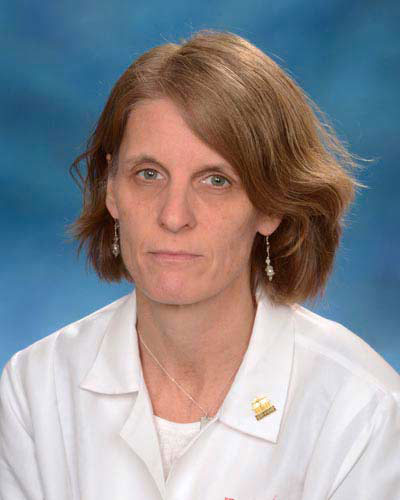
Tuesday, April 30, 2024
A Critical Insight: Dengue Human Challenge Model Prevents Potential Vaccine Missteps
The University of Maryland School of Medicine (UMSOM) Dean, Mark T. Gladwin, MD, announced that Miriam K. Laufer, MD, Professor of Pediatrics, Medicine, and Epidemiology & Public Health, has been appointed as the Interim Head of UMSOM's Center for Vaccine Development and Global Health (CVD).

Tuesday, April 30, 2024
Miriam K. Laufer Appointed Interim Director of the Center for Vaccine Development and Global Health
The University of Maryland School of Medicine (UMSOM) Dean, Mark T. Gladwin, MD, announced that Miriam K. Laufer, MD, Professor of Pediatrics, Medicine, and Epidemiology & Public Health, has been appointed as the Interim Head of UMSOM's Center for Vaccine Development and Global Health (CVD).

Thursday, October 12, 2023
UM School of Medicine's Kirsten Lyke Elected as Member of Prestigious National Academy of Medicine
Kirsten E. Lyke, MD, Professor of Medicine and Physician-Scientist at the Center for Vaccine Development and Global Health (CVD) at the University of Maryland School of Medicine (UMSOM), was elected this week as a new member of the National Academy of Medicine (NAM). She was recognized for her pivotal research in emerging infections and human challenge models that have informed and shaped global vaccine and public health policy.
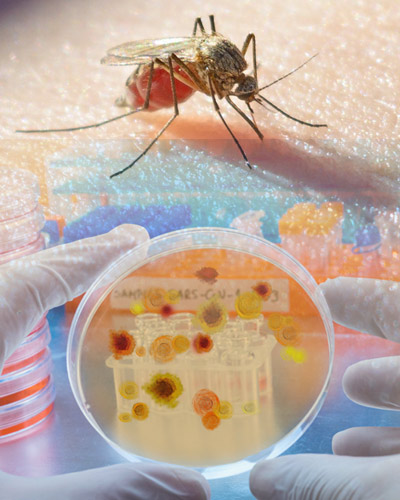
Monday, July 18, 2022
New Genomic Research Shows Why Testing Malaria Vaccines in the Clinic is as Rigorous as Natural Exposure in the Field
Malaria is the deadliest mosquito-borne parasitic infection of humans. In 2021, after a century of research, the World Health Organization (WHO) approved the world’s first malaria vaccine. That vaccine reduces the incidence of malaria infections in young children aged 5-17 months by only 30 percent, meaning that it remains critical to continue developing and testing more effective vaccines.
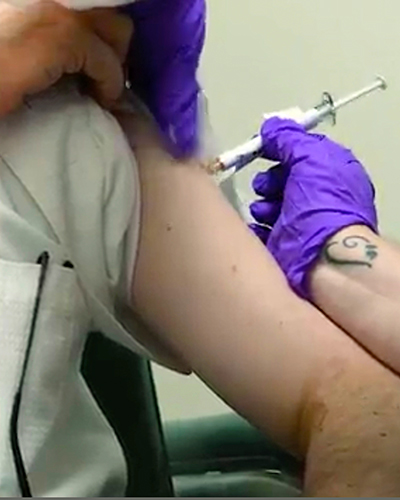
Tuesday, May 05, 2020
UM School of Medicine is First in U.S. to Test Unique RNA Vaccine Candidate for COVID-19
In a significant development in the global effort to discover a safe and effective vaccine for COVID-19, researchers at the University of Maryland School of Medicine (UMSOM) became the first in the U.S. to begin testing experimental COVID-19 vaccine candidates developed by Pfizer and BioNTech. The research, funded by Pfizer Inc., will study the safety, efficacy, and dosing of an experimental mRNA -based vaccine.
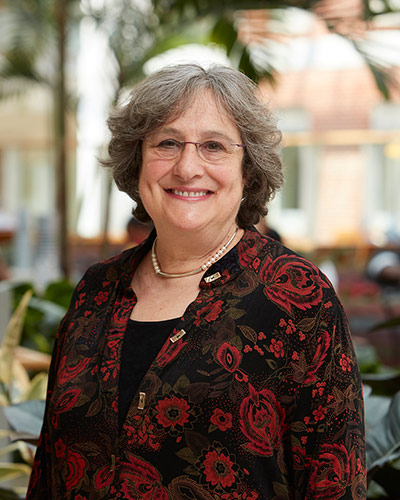
Thursday, April 23, 2020
UM School of Medicine Researchers Test Remdesivir as Potential Therapy for COVID-19 Patients
Researchers at the University of Maryland School of Medicine (UMSOM) are testing the effectiveness of the investigational antiviral drug remdesivir in hospitalized adult patients with SARS-CoV-2 (COVID-19). The randomized controlled clinical trial is evaluating the safety and effectiveness of the drug, and it is part of a national study funded by the National Institute of Allergy and Infectious Diseases (NIAID) of the National Institutes of Health (NIH).
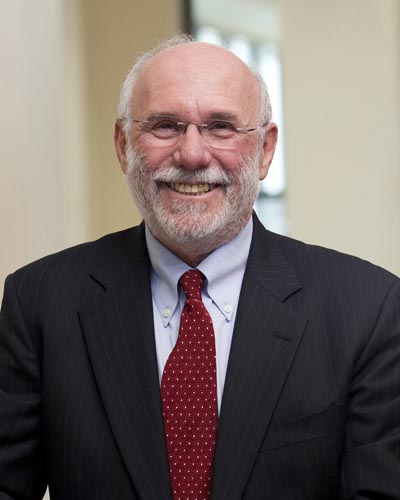
Wednesday, October 30, 2019
UM School of Medicine's Myron M. Levine, MD, DTPH, to Receive Prestigious Lifetime Award for Five Decades of Pioneering Vaccine Research
Myron M. Levine, MD, DTPH, the Simon and Bessie Grollman Distinguished Professor at the University of Maryland School of Medicine (UMSOM), Associate Dean for Global Health, Vaccinology and Infectious Diseases, and Founder and Former Director of the Center for Vaccine Development and Global Health (CVD) is a co-recipient of the 2020 Research! America Geoffrey Beene Foundation Builders of Science Award for his pioneering vaccine and infectious disease research.

Thursday, October 24, 2019
Dr. James Campbell Makes Baltimore Magazine’s 2019 “Top Docs” List
Dr. Campbell is a pediatric infectious disease specialist conducting important vaccine research

Monday, October 21, 2019
UM School of Medicine's Kathleen M Neuzil Elected as Member of Prestigious National Academy of Medicine
Kathleen M. Neuzil, MD, MPH, Professor of Medicine and Pediatrics and Director of the Center for Vaccine Development and Global Health (CVD) at the University of Maryland School of Medicine (UMSOM), has been elected as a member of the National Academy of Medicine (NAM), in recognition of her pivotal research that has informed and shaped global vaccine and public health policy. Her membership was announced at the annual NAM meeting in Washington, D.C., placing her among the 2,178 U.S. members of this important organization. Membership in the Academy is considered one of the highest honors for individuals who have made major contributions to the advancement of the medical sciences, health care and public health.
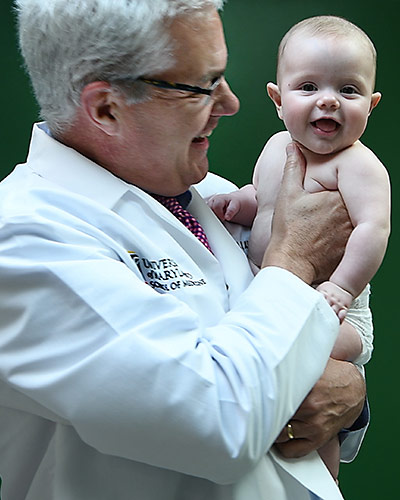
Wednesday, July 17, 2019
Vaccines Tested in UM School of Medicine’s Center for Vaccine Development Protect Children Around the World
For 30 years, the Center for Vaccine Development and Global Health (CVD) at the University of Maryland School of Medicine (UMSOM) has collaborated with the Pediatric Center of Frederick to test vaccines used in pediatric care.
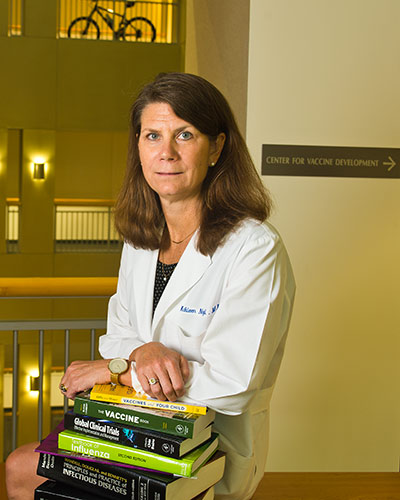
Friday, November 02, 2018
UMSOM Global Health Expert Named to Prestigious World Health Organization Immunization Panel
Kathleen Neuzil, MD, MPH, Professor of Medicine and Pediatrics and Director of the Center for Vaccine Development and Global Health (CVD) at the University of Maryland School of Medicine (UMSOM), has been named to the World Health Organization’s (WHO) Strategic Advisory Group of Experts (SAGE) on Immunization.

Sunday, October 28, 2018
American Society of Tropical Medicine & Hygiene Awards Dr. Miriam Laufer the LePrince Medal for Malaria Research
Miriam Laufer, MD, MPH, Professor of Pediatrics and Associate Director for Malaria Research at the University of Maryland School of Medicine’s (UMSOM) Center for Vaccine Development and Global Health (CVD), was awarded the Joseph Augustin LePrince Medal by the American Society of Tropical Medicine and Hygiene (ASTMH).
